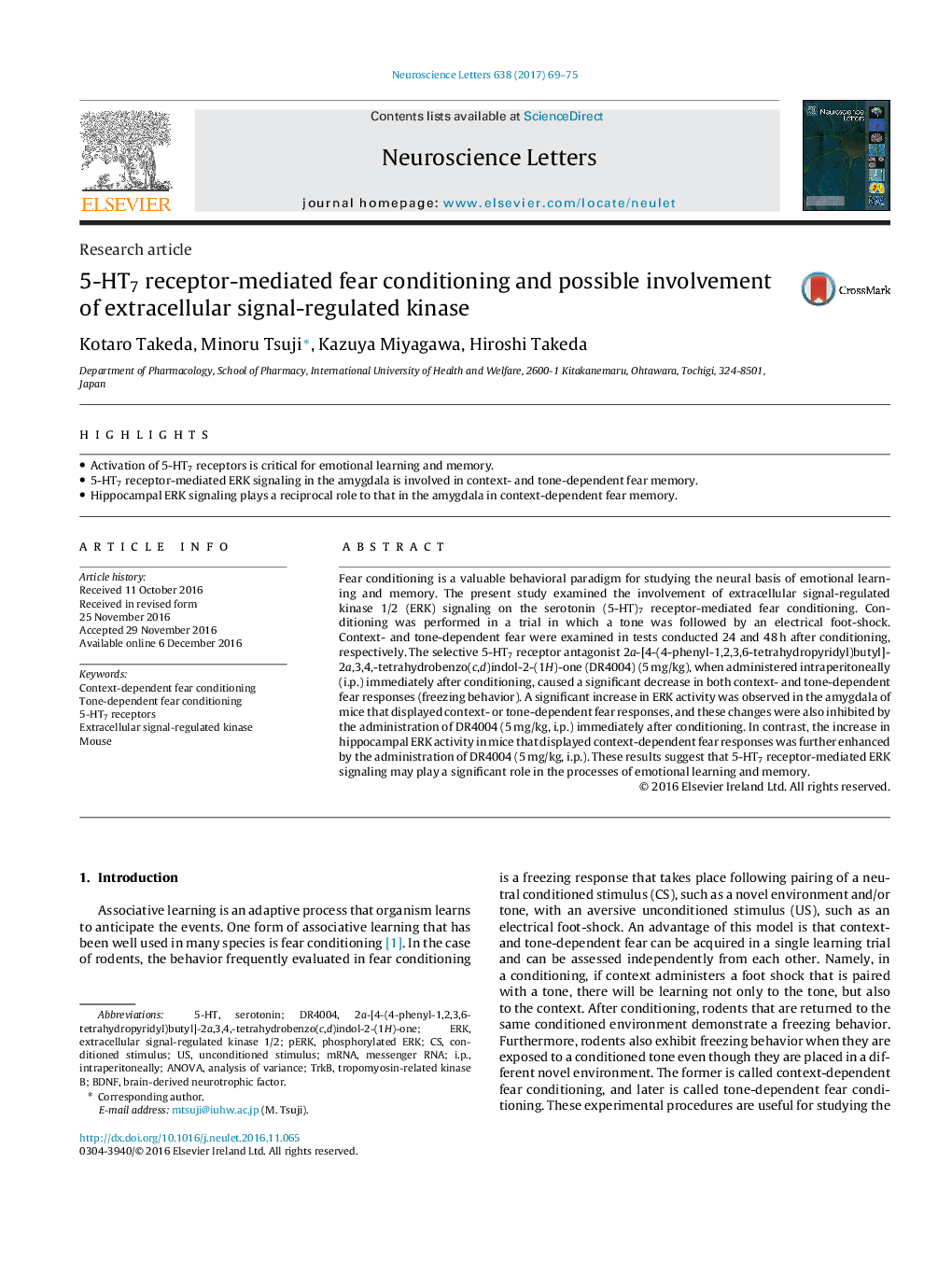| Article ID | Journal | Published Year | Pages | File Type |
|---|---|---|---|---|
| 5738850 | Neuroscience Letters | 2017 | 7 Pages |
Abstract
Fear conditioning is a valuable behavioral paradigm for studying the neural basis of emotional learning and memory. The present study examined the involvement of extracellular signal-regulated kinase 1/2 (ERK) signaling on the serotonin (5-HT)7 receptor-mediated fear conditioning. Conditioning was performed in a trial in which a tone was followed by an electrical foot-shock. Context- and tone-dependent fear were examined in tests conducted 24 and 48Â h after conditioning, respectively. The selective 5-HT7 receptor antagonist 2a-[4-(4-phenyl-1,2,3,6-tetrahydropyridyl)butyl]-2a,3,4,-tetrahydrobenzo(c,d)indol-2-(1H)-one (DR4004) (5Â mg/kg), when administered intraperitoneally (i.p.) immediately after conditioning, caused a significant decrease in both context- and tone-dependent fear responses (freezing behavior). A significant increase in ERK activity was observed in the amygdala of mice that displayed context- or tone-dependent fear responses, and these changes were also inhibited by the administration of DR4004 (5Â mg/kg, i.p.) immediately after conditioning. In contrast, the increase in hippocampal ERK activity in mice that displayed context-dependent fear responses was further enhanced by the administration of DR4004 (5Â mg/kg, i.p.). These results suggest that 5-HT7 receptor-mediated ERK signaling may play a significant role in the processes of emotional learning and memory.
Keywords
TrkB5-HTi.p.mRNAERKBDNFPhosphorylated ERKmessenger RNAanalysis of varianceANOVAIntraperitoneallySerotoninBrain-derived neurotrophic factorunconditioned stimulusconditioned stimulusMousetropomyosin-related kinase BPERKextracellular signal-regulated kinase 1/2extracellular signal-regulated kinase5-HT7 receptors
Related Topics
Life Sciences
Neuroscience
Neuroscience (General)
Authors
Kotaro Takeda, Minoru Tsuji, Kazuya Miyagawa, Hiroshi Takeda,
